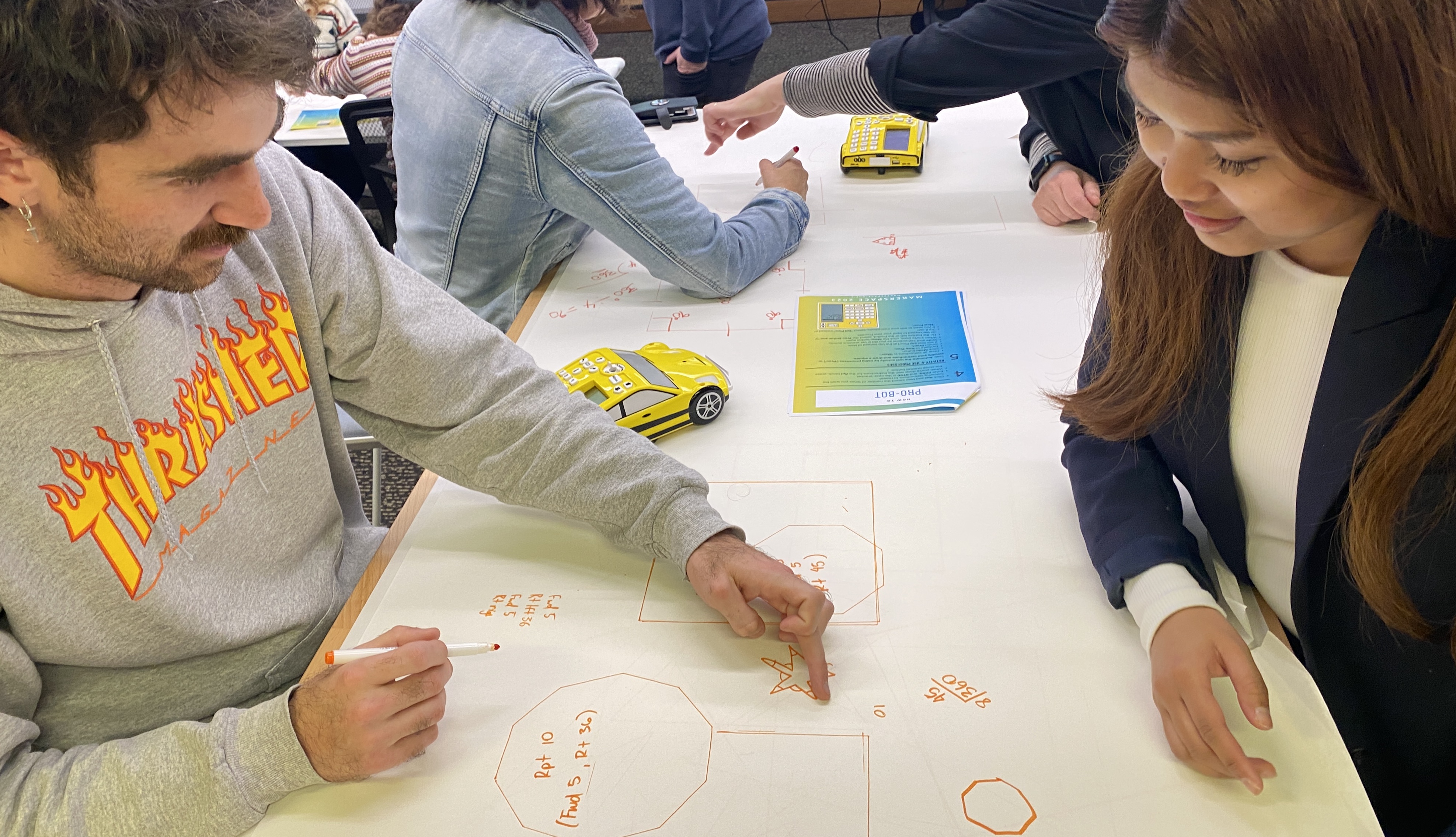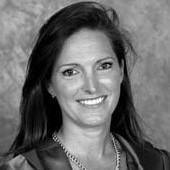
Coding and STEM @ the University of Newcastle
The University of Newcastle provides professional learning opportunities for the teaching and learning of Coding & STEM in primary and secondary schools. The focus areas of the professional learning opportunities and research run are:
- The implementation of the Digital Technologies learning area of the national Australian Curriculum
- Teaching Coding and Computational Thinking in K-12
- Integrating Coding and Computational Thinking with different K-12 subjects (such as Science, Numeracy and Literacy
All of the workshops are focused on developing competencies included in the Digital Technologies learning area of the national Australian Curriculum and the capabilities outlined in the NESA's Digital Technologies and ICT Resources Guide. The conference and workshops have been developed in partnership with Google.
STEM Education Professional Development Conference
About
In 2024, the University of Newcastle will host a two-day professional learning conference focused on digital technologies (coding and STEM) for Primary (K-6) teachers at the Callaghan Campus.
Developed in partnership with Google, this conference provides participants the opportunity to log up to 10 hours of NSW Education Standards Authority (NESA) PD in the priority area of ‘delivery and assessment of the NSW curriculum.’
This aligns with the following standard descriptors from the Australian Professional Standards for Teachers, supporting the maintenance of Proficient Teacher Accreditation in NSW.
1.4.2 Strategies for teaching Aboriginal and Torres Strait Islander students
1.3.2 Students with diverse linguistic, cultural, religious and socioeconomic backgrounds
2.1.2 Content and teaching strategies of the teaching area
2.5.2 Literacy and numeracy strategies
2.6.2 Information and communication technology (ICT)
3.3.2 Use teaching strategies
3.4.2 Select and use resources
4.5.2 Use ICT safely, responsibly and ethically
6.4.2 Apply professional learning and improve student learning
STEM Education Conference | 4 & 5 September | 9:30am – 3:00pm
The Treehouse Function Room | The University of Newcastle
Program Details
Join us for a two-day professional development workshop focused on coding, computational thinking, and digital technologies across subjects like Science, Numeracy, and Literacy. Through hands-on experiences with Scratch, micro: bits, green screen animation and editing environments, stop motion software, storyboards, and filming, you’ll develop a range of critical thinking, problem-solving and collaboration skills to take back to your classroom. We will unpack the new syllabus documents, including Science & Technology, Numeracy, and Literacy, to provide insights on aligning your teaching with current curriculum standards.
Led by experienced educators and technology experts, these workshops are tailored for K-6 classroom teachers with little to no prior experience in coding or digital technologies. You’ll gain practical strategies, lesson ideas, and resources to effectively implement digital tools and computational thinking in your classroom. The workshops will also provide opportunities to connect with fellow educators, sharing ideas and experiences that will empower you and your students and enhance their learning through engaging and educational technologies.
The conference has been developed in a partnership with Google.
Program Details
Schedule - Day 1 (Thursday 7 November)
| 8:30am | Register |
| 9:00am | Acknowledgment of Country – Professor Elena Prieto-Rodriguez |
| 9:15am | Keynote Speakers: Dr Katie Waters & Shirley Casper Unpacking the Science & Technology Syllabus |
| 9:45am | Session 1: Introduction to micro:bits Unpacking the Science & Technology Syllabus |
| 10:45am | Morning tea |
| 11:00am | Session 2: micro:bits in action Ideas on how to incorporate coding into Science and Mathematics lessons. |
| 12:00pm | Session 3: Introduction to Scratch |
| 12:30pm | Lunch |
| 1:15pm | Session 4: Scratch in Action Scratch Coding and Maths: building block code that allows students to draw polygons while developing a deeper understanding of angle relationships and algorithms. |
| 3:00pm | Concludes |
Schedule - Day 2 (Friday 8 November)
| 8:30am | Register |
| 9:00am | Acknowledgment of Country – Associate Professor Erica Southgate |
| 9:10am | Keynote Speaker: Joanne Turnbull Utilising Technologies in the Everyday Classroom |
| 9:20am | Session 1: Introduction to filming Green Screening and iMovie templates for the classroom. How do we do it and where does it fit into the curriculum? |
| 10:00am | Session 2: Stop Motion How to create a basic Stop Motion clip utilising classroom resources. |
| 10.45am | Morning tea |
| 11:00am | Session 3: Green Screening Utilising the Do Ink App and portable green screens to create information reports. |
| 12:00pm | Session 4: iMovie Templates Digital storytelling through iMovie templates. |
| 1:00pm | Lunch |
| 1:45pm | Session 5 Movie Time! Sharing group work samples and identifying further uses and curricular links. |
| 1:00-2:00pm | Workshop 5: Linking Scratch Maths |
| 3:00pm | Concludes |
***Don't forget to collect your free micro:bit ***

People

Lecturer | Primary STEM Lead, Education
School of Education
University of Newcastle
About
We welcome Dr. Katie Waters, an experienced classroom teacher and lecturer in Primary STEM at the University of Newcastle, as a presenter at our conference. With over 25 years of experience, Katie will share her expertise on the integration of robotics in the primary classroom, specifically focusing on their connection to mathematics. Throughout Katie’s presentation, participants will have the opportunity to engage in a series of hands-on workshops. Katie will introduce ProBots (a level up from BeeBots) and familiarise attendees with their basic features and functions.
Participants will be guided step-by-step in creating simple programs using essential commands and parameters. The workshops will explore how ProBots can be effectively used for mathematics investigations, enabling students to create drawings involving lines, perimeter, angles, area, and various 2D shapes. Moreover, participants will delve into coding, programming procedures and discover how the built-in sensors of ProBots can be leveraged to promote task-based challenges, problem-solving, and critical thinking skills. Join us in embracing the exciting realm of robotics in the primary classroom and uncover innovative approaches to integrate mathematics and technology, fostering engagement and empowerment among young learners.
Shirley Casper

Subject Matter Expert in Science and Technology K-6
New South Wales Education Standards Authority NESA
Lecturer | Primary STEM UNSW
About
We are delighted to welcome Shirley Casper, an accomplished Subject Matter Expert in Science and Technology K-6, to present virtually at our conference. Shirley’s extensive background includes managing the development of STEM activities for K-6 students, contributing to the current Stage 6 Science syllabuses, and creating teacher resources for various science courses. As a former Science teacher specialising in Biology and Chemistry, she brings a deep understanding of the classroom environment. In her upcoming online presentation, delivered in conjunction with Dr. Katie Waters, Shirley will provide valuable insights into the new Science and Technology syllabus, offering practical strategies for educators.
Jess Bowman

IT Coordinator & Stage 3 Teacher
Tighes Hill Public School
Casual Academic
School of Education
University of Newcastle
jessica.bowman@newcastle.edu.au
About
We are excited to introduce Jess Bowman, a dedicated STEMinist and self-proclaimed 'proud nerd,' as one of our esteemed conference presenters. Jess’s passion for STEM education drives her to create enriching experiences for students and educators alike, fostering confidence and enthusiasm in STEM subjects. Having collaborated with experts such as Associate Professor Elena Prieto-Rodriguez and the creators of the Scratch Maths program, Jess has established herself as a leader in professional learning for educators, sharing valuable insights at events like the Google CS Outreach Partner Summit 2022 and the K-6 Google STEM Conference 2023.
At this year’s conference, Jess Bowman will lead a series of ‘hands-on’ workshops unpacking the K-6 Mathematics & Science & Technology syllabus documents, linking to Scratch and providing everyday experiences for integration into the K-6 classroom. She will also dive into the practical applications of micro:bits in primary classrooms, focusing on Mathematics, English, and Science. Participants will engage in coding activities using micro:bits' features and sensors to enhance STEM learning. Jess will offer practical ideas such as using micro:bits to create digital dice for math lessons or incorporating sensors for science investigations, providing innovative strategies and resources for integrating STEM across the curriculum.
Associate Professor Erica Southgate

Associate Professor / Head of EdTechPillar
School of Education
University of Newcastle
erica.southgate@newcastle.edu.au
About
Erica Southgate is Associate Professor of Emerging Technologies for Education (UoN). She is a teacher educator, technology ethicist, maker of award-winning computer games for literacy, and lead author on the Australian Government commissioned report, ‘Artificial Intelligence and Emerging Technologies in Schools.’ Erica is founder and lead researcher on the VR School Study, the first and longest running research on embedding VR into school classrooms.
Joanne Turnbull

Teacher Librarian
Valentine Public School
joanne.turnbull4@det.nsw.edu.au
About
We are excited to welcome Joanne Turnbull, an innovative teacher librarian and "tech-extraordinaire" from Valentine Public School. Joanne is known for her creative integration of technology and literacy, using tools like Minecraft Education, green screening, robotics, and AI to engage students in hands-on, dynamic learning experiences. Under her leadership, the Valentine PS library was awarded the NSW Department of Education's Leader in Digital/Makerspaces of the Year in 2018, and Joanne was a finalist for the Best STEM Program at the 2019 Australian Education Awards. Joanne was selected to work with the NSW Department of Education's Catalyst Lab, developing solutions on "Ethics in a Time of AI," and has been featured on The Educator Magazine's "Hot List" of top educators. Her work has also been recognised through the Regional North Operational Directorate Awards for Educational Excellence.
Joanne’s workshops will provide practical strategies for using stop motion and green screening across all Key Learning Areas (KLAs), empowering teachers to create rich visual narratives. Attendees will leave inspired to foster creativity, collaboration, and critical thinking in their classrooms while deepening students' understanding of diverse cultures and histories.

Deputy Head of School, Teaching and Learning
School of Education
University of Newcastle
About
We welcome Professor Elena Prieto-Rodriguez as a distinguished guest at our conference. With a remarkable research career spanning across Science, Technology, Engineering, and Mathematics Education (STEM) as well as Theoretical Computer Science, Elena brings a wealth of expertise that has significant implications for Australia's future innovators. As an expert in mathematics education and a co-founder of HunterWiSE, Elena is passionate about shaping the next generation of mathematics teachers to re-energise mathematics education in Australia.
Through HunterWiSE, Elena and her team are dedicated to promoting and supporting girls and women in STEM through a comprehensive school program and a series of networking events across the Hunter region. This integrated approach aims to not only increase participation but also foster retention of girls and women in STEM fields. Join us as we gain invaluable insights from Associate Professor Elena Prieto-Rodriguez's pioneering work and explore how we can collectively inspire and empower the next generation of STEM leaders in Australia.
The University of Newcastle acknowledges the traditional custodians of the lands within our footprint areas: Awabakal, Darkinjung, Biripai, Worimi, Wonnarua, and Eora Nations. We also pay respect to the wisdom of our Elders past and present.